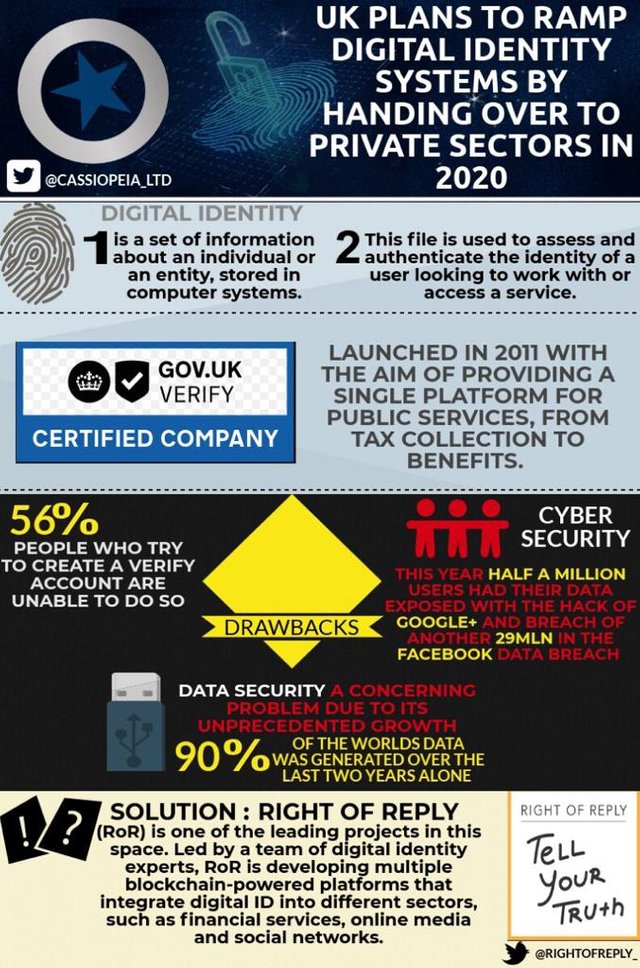The UK government recently unveiled plans to pass on the management of the Verify system to the private sector, after a period of unsuccessful results. Regardless of who takes over the responsibility, handling digital identities is a major task and should be approached with due concern.
In October, the UK government announced that it will ceased investment in ‘Verify’, the digital identity system. The decision was later followed by moves of opening up opportunities for the private sector to take over.
“The Government expects that commercial organisations will create and reuse digital identities, and accelerate the creation of an interoperable digital identity market,” said Oliver Dowden, Minister for Implementation at the Cabinet Office.
“The approach announced today ensures that Gov.uk Verify will continue to protect public sector digital services from cyber threats, including identity fraud, and other malicious activity. In addition, the contracts enable the private sector to develop affordable identity assurance services that will meet future private and public sector needs,”
Verify was launched in 2011 with the aim of providing a single platform for public services, from tax collection to benefits. An integrated modern ID system means that separate departments don’t have to set up their own, saving time and resources.
Although the idea behind Verify was sound, its execution has been poor and disappointing: 56% of people who try to create a Verify identity are unable to do so.

RoRKey, one of Right of Reply subsidiaries, focuses on aligning digital and real identity to allow verifiable identity and truth. RoRKey offers verified digital reputation identities for registered users (DRI Standard and DRI Pro), which allow them to interact in a secure and protected ecosystem in various social communications and online media content, as well as offering a verified ID that can used for different services within Right of Reply and its partners.
Right of Reply and RorKey are planning to partner with other third parties such as financial institutions, utility and insurance companies, online payment platforms, websites and social media to use DRI Pro as the means to prove the user’s digital identity. The plan for DRI Pro is to become an officially recognised legal proof of ID.
“In the digitised economy, individuals and organisations will be recognised by their digital identities. But most importantly, we need to be able to trust the systems that store digital IDs. Blockchain is the right technology for this end: It is decentralised, effective and minimises the need for trust”. says Stefania Barbaglio, from Right of Reply.
READ THE FULL ARTICLE HERE : https://medium.com/@cassiopeiaservicesltd/uk-plans-to-revamp-digital-identity-system-by-handing-over-to-private-sector-in-2020-288fed9208a1
Follow us for informative and up to date content on blockchain and upcoming ICO'S :
WEBSITE : https://cassiopeia-ltd.com/
TELEGRAM : https://t.me/joinchat/IRmyjBGoplyOw6alnlHGXw
YOUTUBE : https://www.youtube.com/channel/UC7ji33FsDOBxWmQNVEEBw2Q?view_as=subscriber